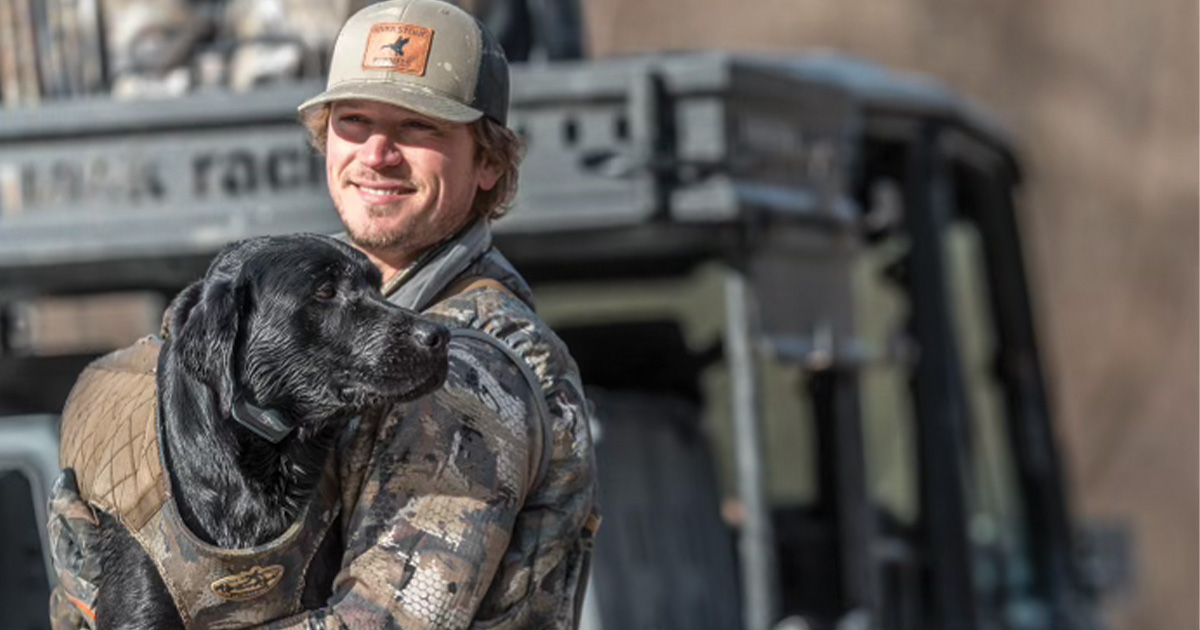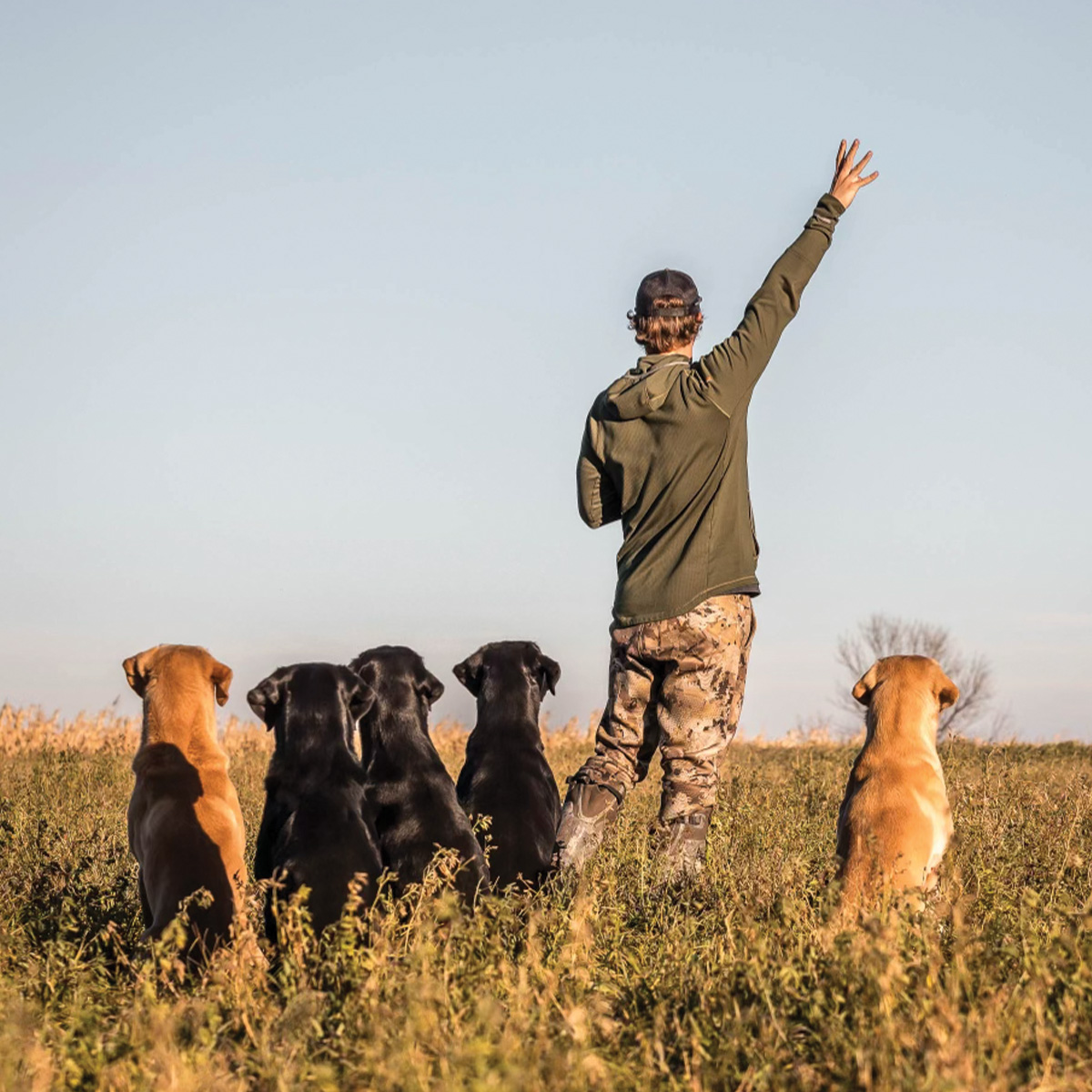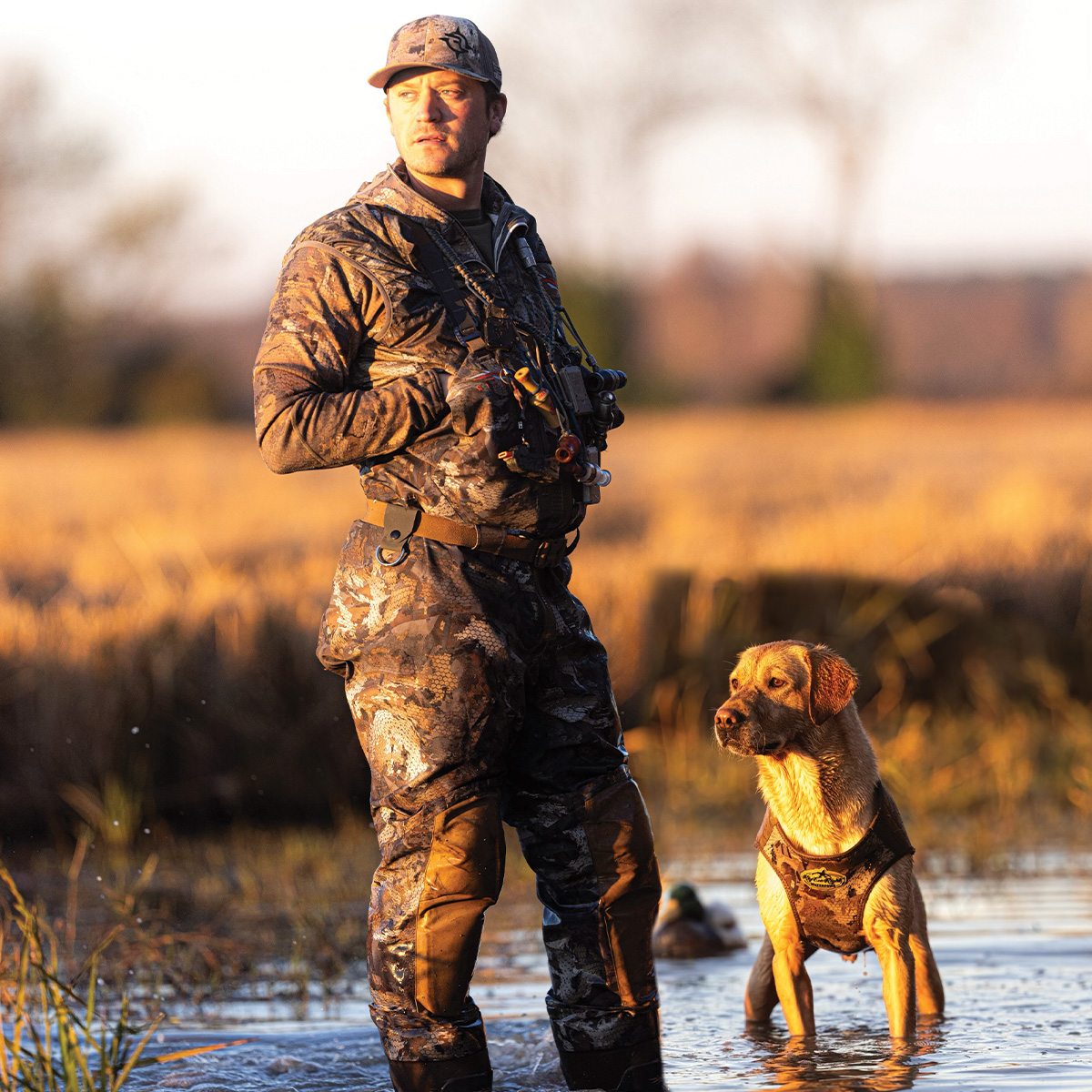Meet the Trainers: Q&A with Veteran Dog Trainer Josh Miller
Elevate your retriever training skills with insights from Josh Miller of River Stone Kennels
Elevate your retriever training skills with insights from Josh Miller of River Stone Kennels


Meet veteran retriever trainer Josh Miller of River Stone Kennels.
Location: Western Wisconsin
How long have you been a trainer? I trained my first dog in 2005. From there I mentored under a few different guys to learn as much as I could and opened my own kennel in 2010.
If I were to prioritize one thing in that first year, it would be socialization. No one wants a dog they can't have around people or other dogs. You can't get that first year back and this time is so crucial to that dog's development as far as being a great member of your family and society. Building that duck dog is going to take years of work but this first year, if you don't do anything else, do this.
One thing I see way too often is people wanting to go way too fast. Two contributing factors to this, in my belief. One, breeders are producing really intelligent puppies and that makes people feel good when those little early obedience sessions go really well. But just because your kindergartener is starting to color inside the lines doesn't mean that you start prepping for the ACT's... The second factor is that we live in a, “I can have it now” world. We can have almost everything we want with a click and two days shipping. Dogs are not like that, and they require patience that many of us have the luxury of not needing to live with much these days.
To each their own. I don't much mind a dog's name. I care way more about what is in between the dog's ears than what the owner chooses to call them.
Long names turn into a mouthful but we often find owners giving shortened nicknames to those dogs. I would personally avoid names that you will be saying in the field. Someone in the blind yelling "Get that drake!" As in shooting a greenhead could cause confusion for a dog named Drake sitting in the blind with everyone.

For people at home, this answer usually depends on what people have available to them in training areas. We find that the biggest thing that holds people back is simply the area to train. How do you do gun fire introduction living in the suburbs of LA? Or water introduction from your apartment in Chicago? Often, you can't. This is where getting creative and finding ways to make it happen come into play. The answer, “I can't” won't help your dog improve. You need to find a way to make it happen!
Place boards are my favorite tool to use with this. The reason being is that you can do this with little to no pressure with your training. By introducing the place board correctly, you define the area for the dog on where they are supposed to be. Then you can transition that into the training environment. The best part about the place board is that you can bring it with you into the field when you hunt. This takes one more variable away and helps your dog be successful in the field come game day.
I believe a whining dog starts with genetics. Naturally loud dogs tend to produce loud pups. But even then, you can take a naturally quiet dog and produce a noisy dog by mishandling them. This is why I start so heavy with obedience training. If I have the right pup, I know the retrieve desire is in there. There is no reason for me to throw retrieves until my arm falls off "pumping my puppy up.” Instead, I like to have a calm, quiet and under control dog. If the fire is already in there, this is my top priority.
The best way to combat the heat is to not fight it at all. The heat is a scary thing and dogs can go into heat stroke very quickly. Training really early and very late on those summer days is the way to beat it. And some days, it just isn't worth the risk. I personally have never had a dog go into any heat sickness, but it is because I am so careful with it. I have seen dogs go into heat stroke and I never want to see it again.

I want my training to be through my advanced handling before I take a dog into the field. Without it, I am going to find myself in a situation I need it and cause a bad habit. I am looking for my dogs to be the absolute best they can be, so by avoiding putting my dogs in the field before they are ready, I also avoid any bad habits that come with those hunts with a dog that isn't fully ready to be there.
If I had to pick one, it would be breaking. In training, we can't simulate 80 mallards sitting down in the spread and this can make the wheels come off for a dog. Most people are looking down the barrel rather than looking at their dog when this happens so when the dog breaks, they can't make the correction or keep the dog under control. From there, it snowballs into a major issue.
My ideal expectation is that we take what we work on all year in training and apply it into the field. Will it all be perfect? No. This is an uncontrolled hunt and not a controlled training set up. But I want it to be as controlled as possible. Most importantly, have fun! We work so hard all year for this that this should be a joy for both me and the dog to be out there with each other. We need to keep this one in mind!
Ducks Unlimited uses cookies to enhance your browsing experience, optimize site functionality, analyze traffic, and deliver personalized advertising through third parties. By continuing to use this site, you agree to our use of cookies. View Privacy Policy